Raise the Minimum Wage
Raise the Minimum Wage
The following remarks were delivered by the Rev. Dr. Jennifer Copeland at the Minimum Wage Increase – Bill Introduction Press Conference, hosted by Raising Wages NC. To watch the full […]
By Rev. Dr. Jennifer Copeland, Executive Director
by Rev. Dr. Jennifer Copeland, Executive Director
By Lindsay Barth, Event Coordinator & PHW Communications Associate
by Lindsay Barth, Event Coordinator & PHW Communications Associate
By Rev. Dr. Jennifer Copeland, Executive Director
by Rev. Dr. Jennifer Copeland, Executive Director
By Rev. Dr. Jennifer Copeland, Executive Director
by Rev. Dr. Jennifer Copeland, Executive Director
By Rev. Dr. Jennifer Copeland, Executive Director
by Rev. Dr. Jennifer Copeland, Executive Director
By Andrew Hudgins, Program Associate for Operations
by Andrew Hudgins, Program Associate for Operations
Join the Council and Raising Wages NC for a statewide lobby day at the North Carolina General Assembly. Make your voice heard by encouraging your representatives to support a raise […]
By Sandy Irving, Volunteer Program Associate
by Sandy Irving, Volunteer Program Associate
By Aleta Payne, Former Deputy Executive Director
by Aleta Payne, Former Deputy Executive Director
By Aleta Payne, Former Deputy Executive Director
by Aleta Payne, Former Deputy Executive Director
By Rev. Dr. Jennifer Copeland, Executive Director
by Rev. Dr. Jennifer Copeland, Executive Director
By Aleta Payne, Former Deputy Executive Director
by Aleta Payne, Former Deputy Executive Director
By Aleta Payne, Former Deputy Executive Director
by Aleta Payne, Former Deputy Executive Director
By Aleta Payne, Former Deputy Executive Director
by Aleta Payne, Former Deputy Executive Director
By Aleta Payne, Former Deputy Executive Director
by Aleta Payne, Former Deputy Executive Director
By Aleta Payne, Former Deputy Executive Director
by Aleta Payne, Former Deputy Executive Director
By Aleta Payne, Former Deputy Executive Director
by Aleta Payne, Former Deputy Executive Director
By Steve Ford, Former Volunteer Program Associate
by Steve Ford, Former Volunteer Program Associate
By Steve Ford, Former Volunteer Program Associate
by Steve Ford, Former Volunteer Program Associate
By Aleta Payne, Former Deputy Executive Director
by Aleta Payne, Former Deputy Executive Director
By Aleta Payne, Former Deputy Executive Director
by Aleta Payne, Former Deputy Executive Director
By Sandy Irving, Volunteer Program Associate
by Sandy Irving, Volunteer Program Associate
By Jennie Belle, Former Immigration and Farmworkers Director
by Jennie Belle, Former Immigration and Farmworkers Director
By Aleta Payne, Former Deputy Executive Director
by Aleta Payne, Former Deputy Executive Director
By Jennie Belle, Former Immigration and Farmworkers Director
by Jennie Belle, Former Immigration and Farmworkers Director
By Aleta Payne, Former Deputy Executive Director
by Aleta Payne, Former Deputy Executive Director
By Sandy Irving, Volunteer Program Associate
by Sandy Irving, Volunteer Program Associate
By Aleta Payne, Former Deputy Executive Director
by Aleta Payne, Former Deputy Executive Director
By Aleta Payne, Former Deputy Executive Director
by Aleta Payne, Former Deputy Executive Director
By Sandy Irving, Volunteer Program Associate
by Sandy Irving, Volunteer Program Associate
By Jennie Belle, Former Immigration and Farmworkers Director
by Jennie Belle, Former Immigration and Farmworkers Director
By Aleta Payne, Former Deputy Executive Director
by Aleta Payne, Former Deputy Executive Director
By Steve Ford, Former Volunteer Program Associate
by Steve Ford, Former Volunteer Program Associate
By George Reed, Former Executive Director
by George Reed, Former Executive Director
By Steve Ford, Former Volunteer Program Associate
by Steve Ford, Former Volunteer Program Associate
By Aleta Payne, Former Deputy Executive Director
by Aleta Payne, Former Deputy Executive Director
By Aleta Payne, Former Deputy Executive Director
by Aleta Payne, Former Deputy Executive Director
By Steve Ford, Former Volunteer Program Associate
by Steve Ford, Former Volunteer Program Associate
By Aleta Payne, Former Deputy Executive Director
by Aleta Payne, Former Deputy Executive Director
By Aleta Payne, Former Deputy Executive Director
by Aleta Payne, Former Deputy Executive Director
By Jennie Belle, Former Immigration and Farmworkers Director
by Jennie Belle, Former Immigration and Farmworkers Director
By Sandy Irving, Volunteer Program Associate
by Sandy Irving, Volunteer Program Associate
“There is nothing but a lack of social vision to prevent us from paying an adequate wage to every American whether he [or she] is a hospital worker, laundry worker, […]
By Joy Williams, Former PHW Regional Coordinator
by Joy Williams, Former PHW Regional Coordinator
By Willona Stallings, Former Program Coordinator – Partners in Health & Wholeness
by Willona Stallings, Former Program Coordinator – Partners in Health & Wholeness
By Joy Williams, Former PHW Regional Coordinator
by Joy Williams, Former PHW Regional Coordinator
By Aleta Payne, Former Deputy Executive Director
by Aleta Payne, Former Deputy Executive Director
By George Reed, Former Executive Director
by George Reed, Former Executive Director
By Sandy Irving, Volunteer Program Associate
by Sandy Irving, Volunteer Program Associate
By John Zambenini, Former Duke Divinity School Intern
by John Zambenini, Former Duke Divinity School Intern
By Sandy Irving, Volunteer Program Associate
by Sandy Irving, Volunteer Program Associate
By Sandy Irving, Volunteer Program Associate
by Sandy Irving, Volunteer Program Associate
By chris
by chris
Date: Proper 21 – Sep. 29, 2013
Topic: A Living Wage
Focus Text: Luke 16:19-31
We were on our tour bus, about to leave the dorm where we had been staying, when a few of us saw her. She looked about sixty years old, and she looked like she could have been my grandmother. She came quietly around the corner of the building, went straight to the big trashcan, and started digging out our thrown-away lunches. She put what she could find in a bag, and she was gone. Sheltered life that I had led, I had never before seen someone using a trashcan as a food source.
By chris
by chris

Somewhat lost this summer amidst all the conversation about comprehensive immigration reform is a little-known bill called the “Agricultural Guestworker Act” (or “Ag Act,” HB 1773) that has already passed out of the House Judiciary Committee. This harmful bill is a thinly veiled attempt to strip farmworkers of the few rights they have on the job while propping up agribusinesses’ bottom line.
By Aleta Payne, Former Deputy Executive Director
by Aleta Payne, Former Deputy Executive Director
By Sandy Irving, Volunteer Program Associate
by Sandy Irving, Volunteer Program Associate
By David LaMotte, Consultant for Peace
by David LaMotte, Consultant for Peace
By Aleta Payne, Former Deputy Executive Director
by Aleta Payne, Former Deputy Executive Director
By Aleta Payne, Former Deputy Executive Director
by Aleta Payne, Former Deputy Executive Director
Faith leaders in Asheville are adding their voices to those outraged by the actions of NC legislators. Rev. Joe Hoffman, pastor of First Congregational United Church of Christ and an […]
By Sandy Irving, Volunteer Program Associate
by Sandy Irving, Volunteer Program Associate
Pediatrician and author Perri Klass has written a powerful essay on childhood poverty as a disease. She writes in part: Toxic stress is the heavy hand of early poverty, scripting […]
By George Reed, Former Executive Director
by George Reed, Former Executive Director
By chris
by chris
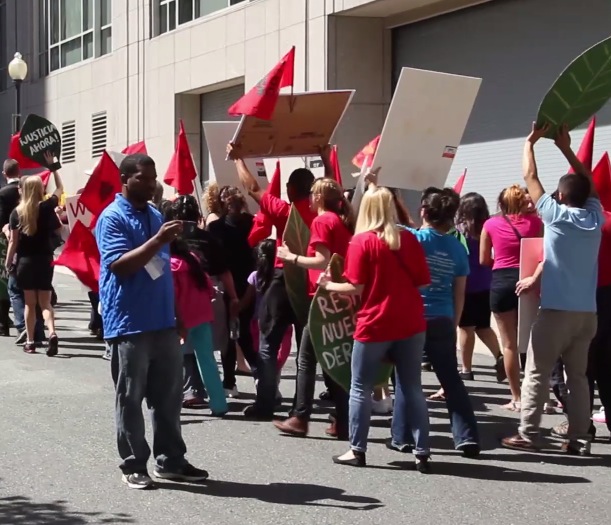
Last week, members of the Farm Labor Organizing Committee (FLOC) joined allies and activists from across the state in protesting Reynolds American Inc.’s treatment of farmworkers. Last year, Reynolds earned $1.3 billion in profits, but the company has hesitated to take proactive steps in guaranteeing good housing and fair pay to the workers at the very heart of its supply chain. Here at the NC Council of Churches, we have long supported farmworkers’ rights to living wages and dignity on the job. No one should have to work in slave-like conditions to provide for their family. Corporations should take responsibility for their supply chains, and the people whose labor makes possible their profits.
By George Reed, Former Executive Director
by George Reed, Former Executive Director
Gun bills that extend the availability and use of guns flood the General Assembly.
By chris
by chris
By Sandy Irving, Volunteer Program Associate
by Sandy Irving, Volunteer Program Associate
By Sandy Irving, Volunteer Program Associate
by Sandy Irving, Volunteer Program Associate
By chris
by chris
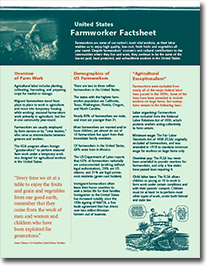
Farmworkers are some of our nation’s most vital workers, as their labor enables us to enjoy high quality, low-cost, fresh fruits and vegetables all year round. Despite farmworkers’ economic and cultural contributions to the communities where they live and work, they continue to be the some of the lowest paid, least protected, and unhealthiest workers in the United States.
By George Reed, Former Executive Director
by George Reed, Former Executive Director

Recently, I heard a powerful message from the Rev. William Barber. Many Council folks know him. He’s the President of the NC NAACP and pastor of the Greenleaf Christian Church (Disciple of Christ) in Goldsboro. The power of his message was not in fiery delivery. It was a low-key conversation with a group of fifty or so progressive leaders, sitting in a circle in the chapel of University United Methodist Church in Chapel Hill. The power was in the profound thoughts he expressed and in the clear rightness of his words.
By chris
by chris

From Acts of Faith: Free Lectionary Resources for Prophetic Worship
Date: 2nd Sunday after Easter, April 15, 2012
Topic: Living Wages
Focus Text: Acts 4:32-35
From the pastoral reflection: “As Christians, we attempt to recapture the vision of work as related to the creating, sustaining, and transforming work of God. Our vocation is not defined simply by our paid employment. What we do at home, in churches, in our volunteer and political activities, all contribute to the “work” that embraces the whole of our lives.”
By Aleta Payne, Former Deputy Executive Director
by Aleta Payne, Former Deputy Executive Director
By chris
by chris
By Aleta Payne, Former Deputy Executive Director
by Aleta Payne, Former Deputy Executive Director
By Willona Stallings, Former Program Coordinator – Partners in Health & Wholeness
by Willona Stallings, Former Program Coordinator – Partners in Health & Wholeness
By Willona Stallings, Former Program Coordinator – Partners in Health & Wholeness

The Sanford Herald
Giang said N.C. MedAssist representatives wanted to travel to each county to meet with eligible residents and explain the enrollment process. The organization contacted the North Carolina Council of Churches and expressed interest in partnering with faith-based organizations willing to host one-day enrollment programs. The Rev. Mechelle Myers of Sanford’s New Endland AME Zion Church received an e-mail from the Council about the initiative and was the first person to respond.By chris
by chris

Harvest of Dignity is a new, original documentary created in 2011. It focuses on the lives and work of farmworkers in North Carolina, providing an in-depth portrait of the people who harvest our food today. It combines interviews with North Carolina farmworkers, advocates, faith leaders and educators, documentary photos and interviews collected by Student Action with Farmworkers interns and clips from the original Harvest of Shame documentary.
By chris
by chris

A Theological Companion to Making Ends Meet After the Great Recession: The 2010 Living Income Standard
This new resource is meant to bring the issue of wages into conversation with theological perspectives of economic justice. Workers Are Worth Their Keep is divided into three main sections. The first section highlights passages from the Bible that speak directly about economic justice, fair pay for workers, and the call of God to treat workers with dignity. The second section examines the perspectives of several major figures from Christian traditions. While their contexts vary greatly, their voices converge around the calling to pay workers wages that are fair and just. The third and final section of this resource quotes from official statements from many of the denominations represented in the NC Council of Churches.By chris
by chris
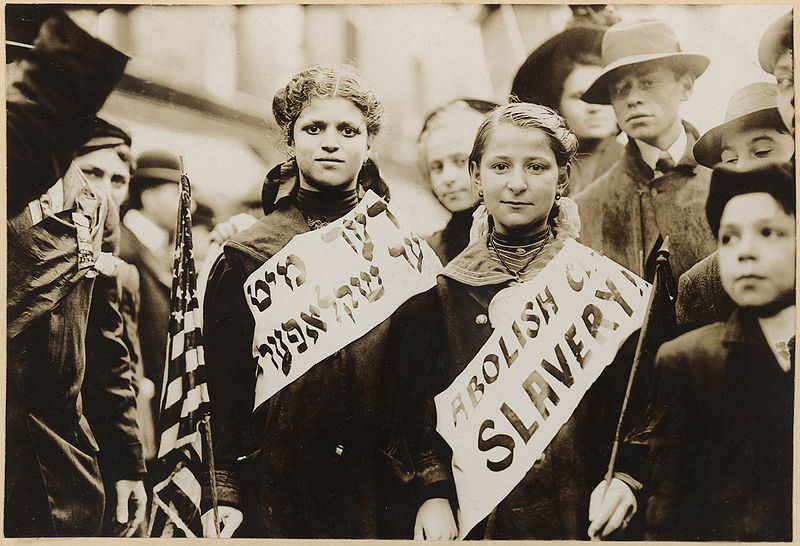
As a society, we decided 75 years ago that child labor needed very strict guidelines to make sure that education comes first and to prevent abusive conditions. The only problem? Children in agriculture were exempted from these protections, in part because most farms were small family operations that needed everyone’s help. Today, mass-scale agribusiness has replaced family farms. But the exemption allowing child labor on farms has remained, meaning that there’s a good chance that pint of blueberries you’re enjoying was hand-picked by 12- and 13-year olds – legally. These same children are too young to work in any other industry.
By chris
by chris
By chris
by chris

Fifty years after “Harvest of Shame,” not much has changed. Farm work remains one of the nation’s most dangerous industries. Here in North Carolina, dangerous conditions in the fields, poverty wages and substandard housing continue to threaten workers’ health and well-being. For example, workers often put in 14-hour days in bad weather – including extreme heat and rain. In North Carolina, 7 farmworkers died of heat stroke in a recent five-year span. They were literally worked to death. And heat stroke isn’t the only problem in the fields.
By chris
by chris
We were on our tour bus, about to leave the dorm where we had been staying, when a few of us saw her. She looked about sixty years old, and she looked like she could have been my grandmother. She came quietly around the corner of the building, went straight to the big trashcan, and started digging out our thrown-away lunches. She put what she could find in a bag, and she was gone.
Sheltered life that I had led, I had never before seen someone using a trashcan as a food source.By chris
by chris
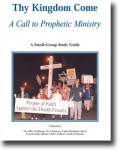
In his life and mission, Jesus saw himself as actively preparing and serving the kingdom of God on earth, to
be as it is in heaven. He saw all of his disciples in the same light and as having the same purpose. Nowhere
in the prayer instructions of Jesus is the focus on getting the earth–or ourselves–to heaven. The heart of
the Lord’s Prayer is a request for heaven on earth. While this difference may seem subtle, its truth is at the very center of the call and practice of prayer and discipleship.
By chris
by chris
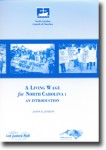
A Living Wage for North Carolina: An Introduction is intended to be just that: an introduction. Exhaustive research abounds on the subjects of the minimum wage and living wage. Yet often these studies—while thorough and informative—assume that the reader has a certain level of expertise. This brief resource seeks to be a primer for readers who are interested in fair wages but do not have the background or resources available to conduct an independent investigation.
By North Carolina Council of Churches
by North Carolina Council of Churches
From the shadows of banking towers of Charlotte and Raleigh to the small towns and hamlets far away from the bustling Piedmont, the much-ballyhooed economy has not lifted all boats. Many people are working hard but are not earning enough to make ends meet in today’s economy. For this reason, a “living wage” movement is gaining momentum around the nation. This movement seeks to educate policymakers and the community about the true costs of making ends meet and to require that local governments and their contractors pay a living wage to their employees.
NC Council of Churches
27 Horne St.
Raleigh, NC 27607
(919) 828-6501
info@ncchurches.org
